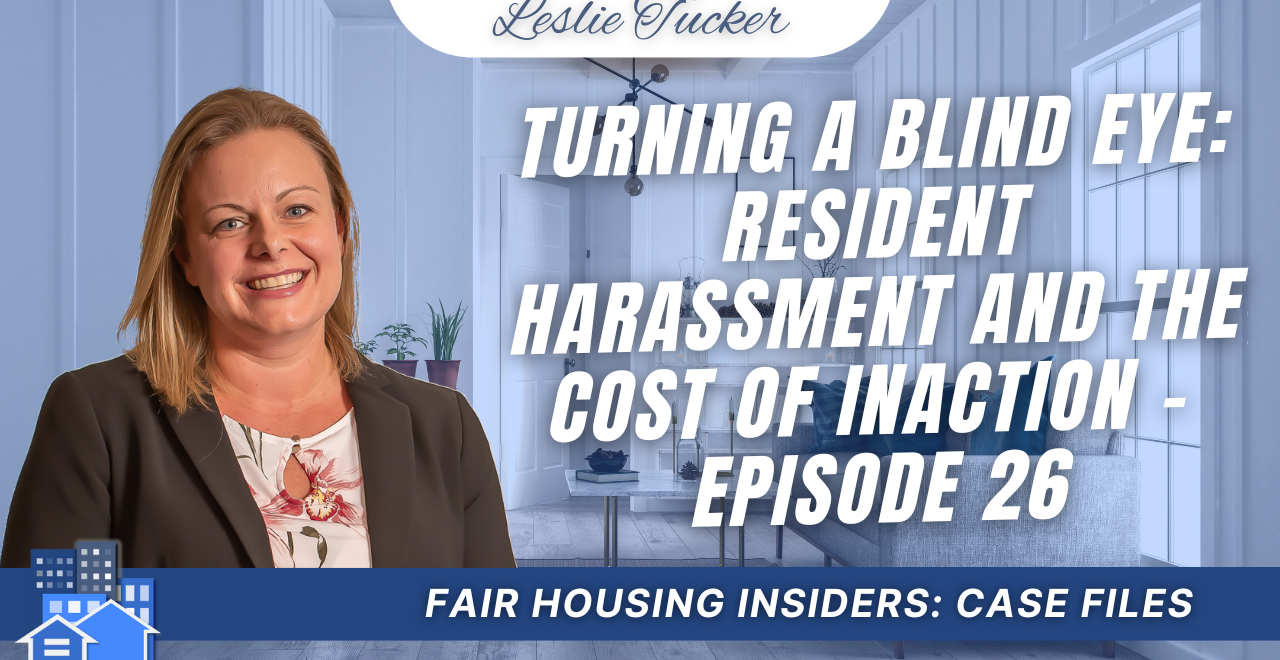In the property management industry, how you address cases of harassment or bullying between residents is important. Property managers play a vital role in maintaining a safe and fair living environment for all residents, and failure to act appropriately can lead to serious legal consequences. The following case highlights the repercussions of allegedly mishandling resident harassment and the importance of adhering to fair housing laws.
United States v. Applewood of Cross Plains (W.D. Wis.)
The Case: Resident Harassment Based on Disability
In this case, a resident named Laura, who has cerebral palsy and a visual impairment, moved into a property with her daughter, who has Down syndrome. Shortly after their arrival, Laura alleged that some residents began harassing them with offensive comments and gestures, telling Laura that her daughter belonged in an institution and making derogatory remarks about their disabilities. These residents even went as far as to submit noise complaints about the daughter to the property manager.
Despite being informed of the harassment, the property manager allegedly failed to take action, stating that he “does not get involved in resident disputes.” Furthermore, the manager reportedly claimed that the property’s insurance would not cover them due to the daughter’s disability and suggested that Laura should move out in exchange for a refund of her security deposit. Ultimately, Laura and her daughter stayed for the duration of their lease but claimed that they continued to face harassment from their neighbors.
The Department of Justice became involved after Laura filed a fair housing complaint and an investigation was completed. The property management company was required to change its policies, take training, and pay $40,000 in damages to Laura, her daughter, and their advocate.
Legal Obligations Under the Fair Housing Act
The Fair Housing Act mandates that landlords and property managers prevent discrimination and address conflicts that arise when residents are targeted because of their membership in a protected class, such as disability. In this case, the manager’s alleged decision not to get involved was a direct violation of the Fair Housing Act because the harassment was related to the daughter’s disability.
Property managers are not required to mediate all disputes between residents, but they must intervene when those disputes involve harassment or discrimination based on protected characteristics. In cases like this, the property manager had a legal responsibility to step in and take effective steps to stop the harassment. This could have been done through counseling sessions, issuing lease violations, or taking other necessary actions to end the behavior.
The Noise Complaint: Navigating Reasonable Accommodations
Some additional complicating factors in this case were the noise complaints filed against Laura’s daughter. Disabilities can sometimes result in behaviors, such as excessive noise, that disturb other residents. In such situations, landlords and property managers must navigate the balance between addressing legitimate complaints and making reasonable accommodations for the resident’s disability.
In this case, the manager allegedly pushed for an immediate solution that placed the responsibility on Laura to “make it stop” without offering support or considering alternative accommodations. Before taking any punitive actions, it is essential that the property manager provide reasonable accommodations, such as allowing extra time or collaborating with the resident to find solutions.
If a resident’s conduct continues to violate the lease, despite accommodations and efforts to manage the behavior, the property manager may eventually have grounds to take action. However, this must be done thoughtfully and with care, ensuring that all reasonable accommodations have been considered before any further steps are taken.
Lessons for Property Managers
This case serves as a critical lesson for property managers, highlighting several key points:
- Fair Housing Compliance: Property managers must understand that they are legally obligated to intervene in disputes when the conflict involves harassment based on protected characteristics like disability, race, or familial status.
- Acting on Harassment: Ignoring harassment or dismissing it as a “resident dispute” can lead to severe legal consequences. Property managers must create a safe environment for all residents and take action to address discriminatory behavior.
- Reasonable Accommodations: When disabilities lead to behaviors that disturb others, such as excessive noise, property managers must be prepared to offer reasonable accommodations before taking any punitive action. This ensures compliance with the Fair Housing Act and creates an inclusive living environment.
Upholding Fair Housing Laws to Foster a Safe and Inclusive Community
Ensuring compliance with fair housing laws is more than just following regulations—it’s about creating a community where everyone is treated with dignity and respect. As this case demonstrates, failing to act appropriately or not having sufficient evidence demonstrating otherwise can lead to costly legal settlements and damage to a property’s reputation. For property managers, the lesson is clear: when harassment involves a protected class, action is not optional—it’s mandatory.
You Might Also Like:
- Update on the Accessible Parking Case You’ve Been Following – Episode 49
- When Eviction Becomes Retaliation – Episode 48
- Case Files: The Price of Parking Discrimination – Episode 47
- Case Files: ESA Denied After Online Provider Verification—What Went Wrong? – Episode 46
- Case Files: When Mold, Disability, and Retaliation Collide – Episode 45

